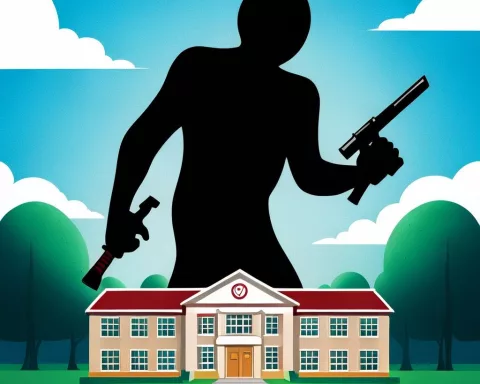Budget cuts in Western Cape may lead to the termination of 2,407 teaching positions, affecting 6% of the region’s teaching workforce and leaving 100,000 students unsupported. Teachers’ unions are advocating for a reshuffling of funds to preserve the jobs, while concerned stakeholders gathered at a recent meeting at the Community House in Salt River to discuss the crisis. The cuts are hitting rural schools the hardest, and unity and collaboration are being called for amidst the crisis.
An Educational Crisis in Western Cape: The Struggle of Teachers Against Budget Cuts. 2,407 teaching positions are at risk of termination in Western Cape due to stringent budget cuts. This would affect an alarming 6% of the region’s teaching workforce, leaving an estimated 100,000 students unsupported and increasing the workload of already overstretched teachers. Teachers’ unions are advocating for a reshuffling of funds to preserve the teacher posts, and there are calls for unity and collaboration from education officials.
Gathering Ground of Concerned Stakeholders
On a recent Saturday, the vibrant Community House in Salt River became a hub for a meeting of worried parents, teachers, students, and union representatives. The atmosphere was charged with collective anxiety as they grappled with the grim reality of 2,407 teaching positions at risk of termination in the New Year in Western Cape. This was the result of a stringent budget. The assembly embodied a staunchly anti-capitalist and pro-working-class stance, united in opposition to the impending cuts that would affect an alarming 6% of the region’s teaching workforce.
Abeedah Adams, a key convenor of the event, described the cascading effect that these cuts would unleash. According to her calculations, an alarming 100,000 students would be left unsupported. The already massive workload carried by teachers would further explode. Adams cautioned that the repercussions of the budget cuts would spill over the boundaries of education, affecting vital services.
The same sentiment was reiterated by Yonela Zembe, a student from Khayelitsha. Zembe stressed on the crucial bond between teacher and student in the learning process, arguing that the lack of one hampers the progress of the other.
Advocacy for Essential Education Services
Daphne Erosi, a spokesperson from Equal Education, reinforced this perspective, declaring that teachers’ presence in classrooms is a basic requirement for learning. She spoke passionately about the continuous struggle they have been facing to uphold this essential cause.
Aliya Chikte, a member of the Alternative Information and Development Centre, turned the spotlight on austerity policies, which have been a persistent hindrance to South Africa’s progress. She expressed her disappointment over the decreasing emphasis on expenditure in areas that support the impoverished, emphasizing the already burdened situation of teachers.
Clement Meyers, a teacher from Athlone High School, articulated the concerns that are prevalent within the teaching community. He spoke about the daily anxieties and discussions amongst teachers, highlighting that the issue had transcended the realm of teaching and become a matter of survival.
Unions and Rural Schools: Fighting for Survival
Teachers’ unions are also answering the call to action. Sibongile Kwazi, the provincial secretary of the South African Democratic Teachers Union (SADTU), advocated for a reshuffling of funds to preserve the teacher posts. She also committed to hosting a meeting to address this urgent issue.
The cuts are reportedly hitting rural schools the hardest. To counter this, the organizing committee suggested setting up forums to amalgamate teachers, students, and union representatives. They appealed for organizational efforts in the lead-up to the medium-term budget announcement in late October.
Calls for Unity and Collaboration Amidst Crisis
David Maynier, the Western Cape MEC for Education, made a plea for unity. He encouraged teachers and unions to work together rather than engage in conflict. He painted a bleak picture, remarking that even if all programmes proposed by the teachers’ unions were eliminated, it would barely make a dent in the colossal R3.8-billion budget deficit.
Recently appointed national Minister of Basic Education, Siviwe Gwarube, agreed with Maynier on the extensive impact of the budget cuts, acknowledging that all provinces would have to shoulder the burden. She attributed the difficult economic circumstances to years of poor policy decisions regarding the country’s management.
In a determined quest for solutions, Gwarube disclosed plans for a critical meeting with the Minister of Finance. This would take place after each province completes an impact analysis. This crucial cooperation aims to protect the future of students, offering a glimmer of hope amidst the turbulent times confronting education in South Africa.
1. What is the educational crisis in Western Cape?
The educational crisis in Western Cape is the impending termination of 2,407 teaching positions due to budget cuts, affecting 6% of the region’s teaching workforce and leaving an estimated 100,000 students unsupported.
2. Who is advocating for a reshuffling of funds to preserve teaching jobs?
Teachers’ unions are advocating for a reshuffling of funds to preserve the teacher posts.
3. How are concerned stakeholders responding to the crisis?
Concerned stakeholders, including parents, teachers, students, and union representatives, gathered at the Community House in Salt River to discuss the crisis and called for unity and collaboration amidst the crisis.
4. Which schools are being hit the hardest by the budget cuts?
The budget cuts are reportedly hitting rural schools the hardest.
5. How are education officials responding to the crisis?
The Western Cape MEC for Education made a plea for unity and encouraged teachers and unions to work together rather than engage in conflict. The recently appointed national Minister of Basic Education acknowledged the extensive impact of the budget cuts and disclosed plans for a critical meeting with the Minister of Finance after each province completes an impact analysis.
6. What is the potential impact of the educational crisis?
The educational crisis could leave an estimated 100,000 students unsupported and increase the workload of already overstretched teachers, while also affecting vital services beyond education.












